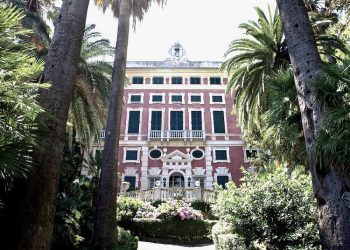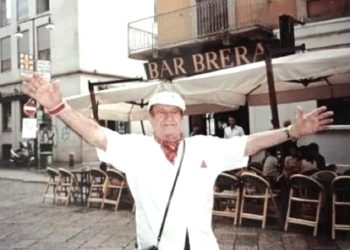From Shpendi Topollaj
Memorie.al / Maybe few remember George today. That beautiful mexo-soprano with that rare voice. And definitely even fewer are those who know her fate and the tragic way she died. After graduating from the Artistic High School in Tirana “Jordan Misja”, Jorgjies received a scholarship to continue his higher studies at the Bucharest Conservatory. She looked forward to this with great joy. Romania had a history similar to that of Albania. Especially the Roman and Turkish invasions brought these two countries closer together. We had Skanderbeg, a hero who united the Albanian princes, and the Romanians a century and a half after him produced Mihai the Brave who united the three principalities, thus remaining a national symbol for that people.
Bucharest, on the banks of the river Dumbovica, (a tributary of the Danube), which had been the capital since 1862, with its medieval buildings, churches and prominent men of science and culture, was a large and lively city. It was not for nothing that this city, from the 1920s to the 30s, was called “Little Paris”.
The people here were smiling and welcoming, which was also understood by those Albanians who took refuge in this country over the years and where they found warmth and opportunity to freely exercise their aspirations and efforts for the nation.
Then here, the teachers quickly realized Jorgjie’s talent and worked wholeheartedly with him. Among them she also felt good and tried to justify the care they showed. As soon as he left the cafeteria, after eating lunch, every day, until late at night, you would find him in a classroom studying or in the small hall, where he sang. All the students admired this mexo-soprano, for the will she had.
But most of all, she had attracted the attention of a student, of Kanto, called Ivanov, who was a couple of years ahead of her. He had been following Jorjie with his eyes for a long time, but she had not understood anything. That’s how all the boys in the corridors of that magnificent building or in the concert hall saw him.
And one day, he, just as he accidentally entered when she was sitting next to the piano, was singing Mimi’s aria from the opera “Bohema” with which she was going to appear in the first year exam. When Jorgia finished singing, Ivanov clapped his hands and said to her:
– “Well done Albanian. I remembered that Cezarina Perrani was singing”.
The girl stood up and turned to him. You recognized him, but because you didn’t expect it, your cheeks reddened a little and, a little confused, you turned to the boy who was still standing near the door, in pure Romanian:
– “Thank you, Evan Garga, for the encouragement and especially for the patience you had to listen to me.”
Immediately Ivanov, a little taken aback by her culture, said the words he had apparently intended:
– “You know what she said to Miss Tchaikovsky”?
– “I know, but it didn’t take long and his promise that he would stay by his side all his life turned out to be in vain.”
– “That’s right, but we never found out what the truth was. They separated very soon after marriage…”!
– “A word of mouth, they parted…”- and Jorgjica didn’t take it any longer, she threw her sweater over her arms and went out saying softly to him: “Good night”!
He, for his part, answered you briefly:
– “Goodbye Mimi”!
Instinctively she also added:
– “Goodbye Rodolfo”!
Since then, they called each other Mimi and Rodolfo. And day by day they were overcome by the violent gusts of love. She was quite attractive, with a slim body, chocolate skin and sweet eyes, while he was tall, with thick hair, blue eyes and thick lips.
They went out to dinners and did not hide their love. Just as without realizing, Jorgja was happy to observe the preservation of tradition and everything good, they had inherited from the village. They often went by the river that flowed undisturbed and talked about nothing. She told them about her country, about Korça, the other Paris and Voskopoja. When they had holidays, they moved everywhere.
They had gone all the way to Vlad Dracula’s castle. Ivanovi tells him that he and his son were not as they are imagined today. They took Carpaz’s looks from Stoker’s novel, written in 1897.
On holidays, even those from the Albanian embassy in Romania invited them both. So when they decided to get married, there were no obstacles. Even Ivanov’s parents loved the soprano from Albania. Especially the mother, she was proud of the new bride who, as she told her friends, was very hardworking and cooked quite well.
While Jorgja graduated, Ivanovi worked at the Opera Theater as a baritone. In the meantime, she also gave birth to a son and together with the diploma they came to Tirana, where they welcomed them with much longing. They had decided to live here. Even Georgia’s parents liked Ivanov. He seemed happy with both the city and the people.
Both were arranged with work, but at the Opera where Jorgjie was being entrusted with leading roles. Until now, everything was about beauty. But Ivanov saw that he could not make a career, as there were many tenors, basses and baritones who had studied in Moscow.
People, especially colleagues, were approachable and sincere, even for foreigners, they did a lot, but this was not enough for Ivanov to feel fulfilled. So he began to withdraw into himself and show his concern. His wife tried to convince him that it was important that they were needed, but it was useless. This state lasted until one day he came out to him openly:
– “We have to go to Romania. I was most appreciated there. This for me is half an existence and I cannot agree with this situation. Albanian baritones are very good”.
Jorgia, who did not expect him, tried to convince him to change his mind:
– “Rodolfo! I understand that you are not feeling well. But things also change. This is a psychological thing that everyone experiences and it will pass. It’s just the beginning and you’ll get used to it.”
– “Not my Mimi. This is work that cannot be done. I want to go to my country”.
And when he saw that he was wrong, he corrected:
– “The three of us should go there. It is not difficult for you to have learned so many years. Then, my dear, I love you very much”.
He was upset that Jorgja is not there, but what should he do. He was confused and when he told his parents, they were also very disappointed.
– “Yes, in the end you will follow your destiny, husband”, – her father tried to ease her. – “Even he is not guilty. It is not easy to run away from your country. You will always feel like a stranger here.” – added the mother. – “Here is Bucharest. Our grandmothers went there, with horses, but not now that the plane…”!
All those days, Jorgja drowned in tears and when she realized that there was no other way, she told her husband to leave because she and her son would stay there, after the concert season was over and she got ready. But when he finally got there, he was surprised that Ivanov had not come out to meet him at the airport, but his mother, who, after hugging him longingly, told him that she would talk to him when they got home. They got into a taxi and the whole way they hardly spoke at all.
Jorgji was being choked by bad forebodings. She hugged her son to her chest and looked around. Beautiful memories came back to him as if through a fog, but what happened to him the most was that he had seen them once in a movie.
After they entered the house, where she met her father-in-law and her son’s old grandfather and drank something cold, Ivanov’s mother, in a trembling voice and with difficulty holding back tears, began to tell that her son, where he worked, had fallen in love with a secretary and was now gone and they were both living in a hotel room until they got home.
– “My daughter, we have loved you and we will love you, even though this was your fate. We feel sorry for you and our grandson, so don’t misunderstand us; not for mercy, you can live with us. You don’t have to worry about him, as we have made it clear that we do not agree with his choice, not to mention that we condemn the action he did.”
– “I am grateful to you, but if I think about it calmly, I will answer them tomorrow”, said Jorgjia.
When they fell asleep, Jorgija did not fall asleep. Dha took it crying silently and told the elders what he had decided in the morning:
– “You don’t know how hard this is for a woman in my country. There is a woman who has been left by her husband. Such is the opinion and I cannot change it. But I have to submit. And this is insulting and unbearable, especially when you are not at fault. I don’t want my son to grow up in a place where he will experience contempt. That’s why I will stay with you, if I don’t burden myself”.
– “What is that word, my daughter? Here you will be like in your country, like at your parents’.
After a few days passed, Jorgia went to the Conservatory and after climbing the stairs, knocked on the rector’s door. He received her with love and as he stood up, he almost shouted:
– “Oh, who has come to us, the excellent student and our bride from Albania”!
Jorgia lost it for a moment and when she gathered herself she spoke:
– “I’m sorry, but I’m no longer the bride of a Romanian. From now on I will be a simple citizen of this country, where I will raise my son, after he left me”.
The rector, an elderly and quite serious man, was very moved by her words and after asking her a couple of common questions said:
– You came for a problem. How can I help you”?
Jorgjia explained that she lived with her father-in-law and mother-in-law who were retired and that she should work somewhere, as it did not make sense to continue like this for long.
– “By the way, – answered the rector without wasting time – can you lead the rehearsal choir? Then we’ll see and do it.”
– “Thank you.” I don’t ask for more either. When can I start”.
– “As soon as tomorrow”.
– “I only have one more request. Can I be given the opportunity to do the rehearsals in the small vocal hall, where I studied myself”?
– “With all pleasure. Wherever you want”.
How he solved this job, Jorgjie’s eyes showed gratitude. But above all, he had been able to work in the hall where he had met Rodolfo and where he trusted his blue and dreamy eyes. He didn’t know if he still loved him. But to hate him, by no means. But for that time, he didn’t even want to think badly. He considered it sacred.
The next day he appeared there, and entered the hall of fame. Nothing had changed there. That painting hanging on the wall, that piano, even that chair where he used to sit. He looked out the window and Dumboviva, just like then, was flowing calmly. He laughed bitterly and turned his head from the door, but now he was no longer the tall boy who had compared him to Çezira Perrani.
Now not she, who on February 1, 1896, had played the unfortunate Mimi in the “Reggio Theater” of Turin, but also Giorgia herself, the real Mimi, had died for Ivanov.
She came to sing her aria once again, Puccini’s masterpiece, conducted by Toscanini, the director of the “Skala” Theater and then of the New York Metropolitan Opera, who had passed away not long ago, but she knew that she had the time has come for the boys and girls of the choir to arrive.
And they were not late. At first they were surprised when the vice rector introduced the new teacher to them, but when he told them that she had also completed her studies there with a gold medal, they were relieved and quickly became friends with her.
The days passed quickly and the boy had started school. He was growing up under the undivided care of his grandparents. Jorgia, as if involuntarily sometimes, brought to mind the book of a prominent Romanian philosopher, “The Heights of Despair”, which Ivanov had once given her for her birthday?
He had read it, but he did not understand why he advised suicide as a means of salvation. In any circumstance, one must find strength and live. To live with dignity, as she was also living. To strive like Mimia herself who was fighting the disease which finally took her.
But fate didn’t think so, as it seemed that she was against it. Without waiting and without remembering, while she was holding the baqueda in her hands and was leading the choir, the window panes shook with noise and that painting fell from the wall. It didn’t take long and amid the dust of the chaos that was created, it was understood that a powerful earthquake had struck the Bucharest of youthful dreams.
An earthquake that took under the ruins it caused, the young and beautiful body, with that chocolate skin of the Albanian mexo-soprano who was paying dearly for her love for a boy she called Rodolfo and who trusted his honor. An artist who to this day is forgotten in her country. Memorie.al




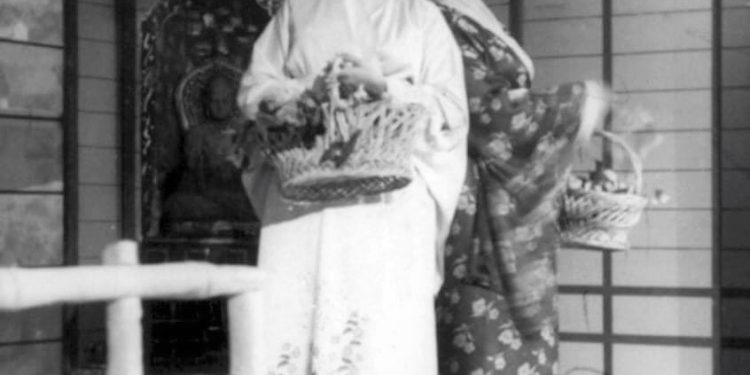
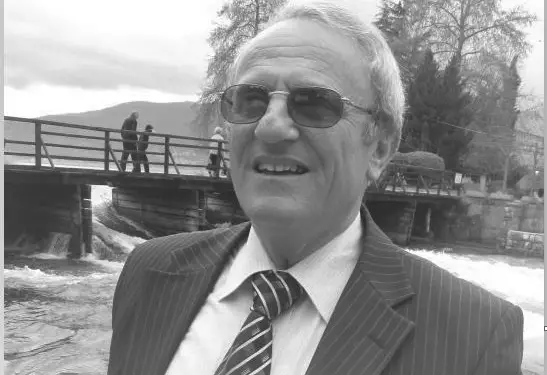
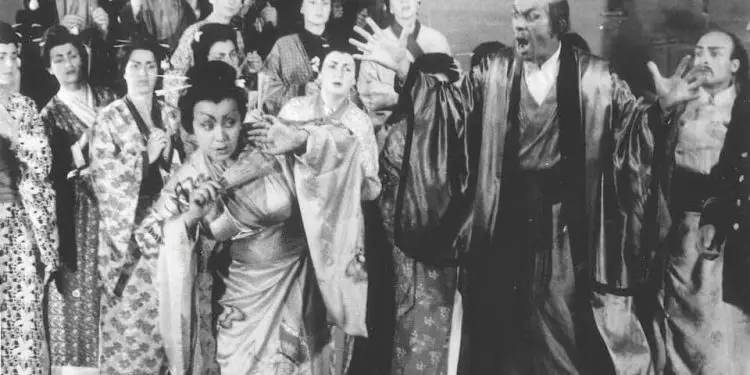
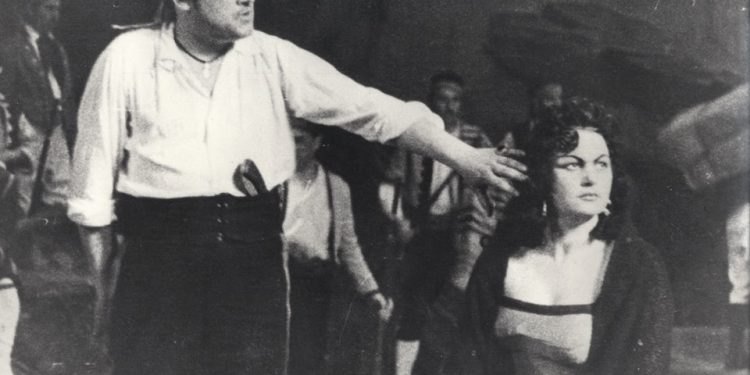
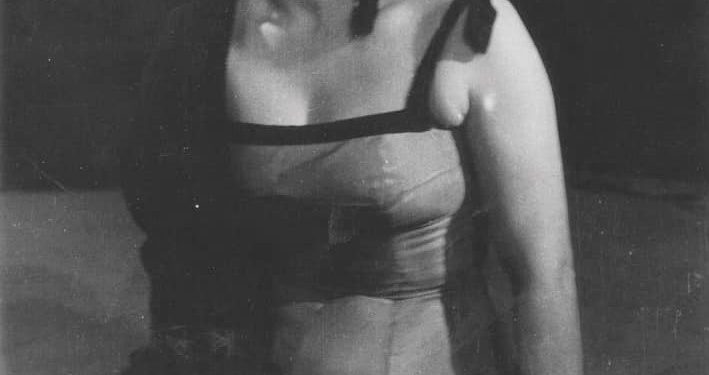
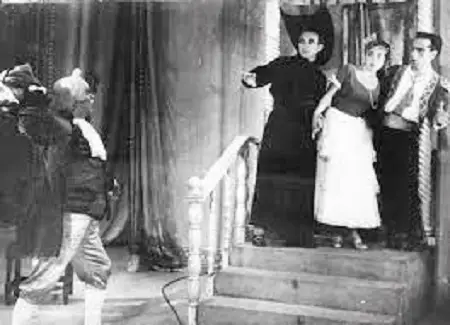
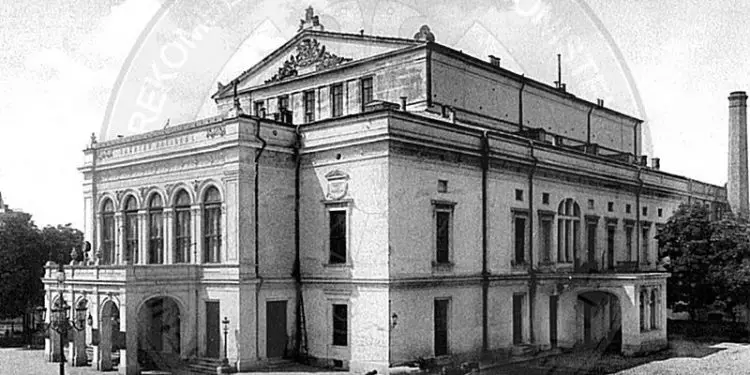
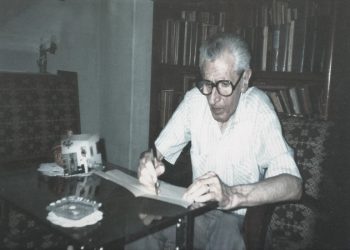
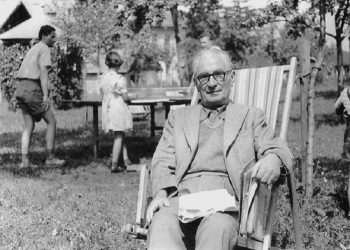

![“Count Durazzo and Mozart discussed this piece, as a few years prior he had attempted to stage it in the Theaters of Vienna; he even [discussed it] with Rousseau…” / The unknown history of the famous Durazzo family.](https://memorie.al/wp-content/uploads/2026/02/collagemozart_Durazzo-2-350x250.jpg)
